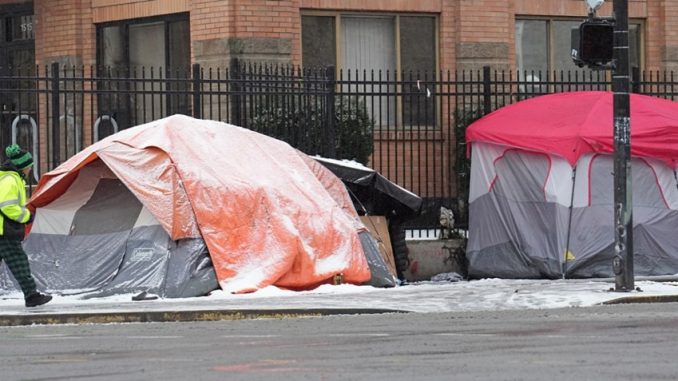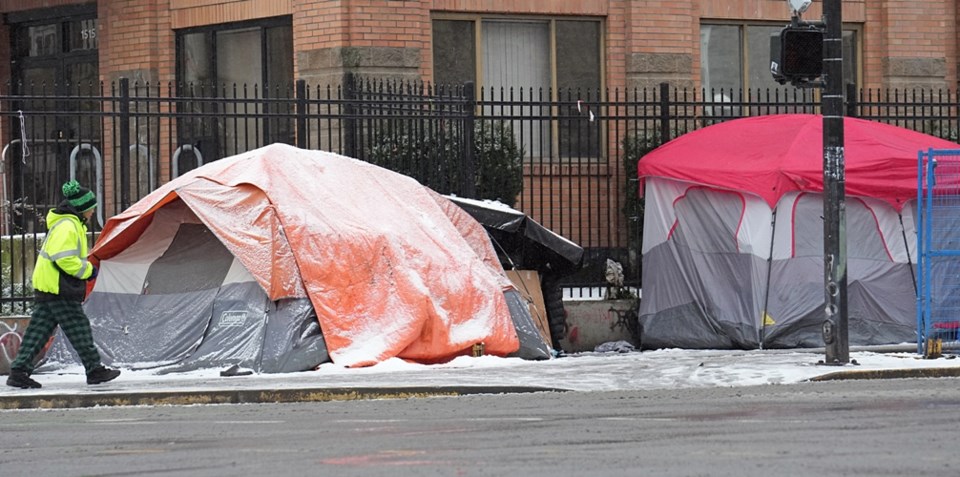
The Island total is one-quarter of the 458 such deaths reported across B.C. last year
- by Jeff Bell, Times Colonist Mar 7, 2025, Read the source article –

At least 114 people experiencing homelessness died in 2023 in the Island Health region, more than four times as many as in 2020, according to data from the B.C. Coroners Service.
That year, 26 such deaths were recorded.
The Island total is one-quarter of the 458 such deaths reported across B.C. last year. The highest number of deaths was in the Fraser Health region, which saw 117.
Ninety-one per cent of the 2023 deaths were classified as accidental, with 86 per cent due to drug toxicity.
The data show 79 per cent of those who died were male, while more than half were between the ages of 30 and 49.
Chief Coroner Dr. Jatinder Baidwan said the numbers speak to the “tragic reality of the struggles many face in our communities throughout B.C.”
Shelley Cook, executive director of Victoria’s Community Social Planning Council, called the numbers “deeply troubling.”
“Any singular person is too many,” said Cook, whose group is helping to organize the region’s Point-in-Time Homeless Count and Survey this month.
“It just speaks volumes for me to the escalating numbers of incredibly vulnerable people who are absolutely unhoused, completely without shelter.”
She said there is a clear need for more resources, more supports and more low-income housing.
The situation is “absolutely acute,” said Cook, noting that people young and old, families and others are being affected.
Our Place executive director Julian Daly said it’s “heartbreaking” that anyone would die while homeless on the region’s streets.
“We continue to work with people every day to ensure that they don’t die of homelessness and that they can get inside to shelter and have good food.”
In Duncan, Debbie Williams, executive director of the Hiiye’yu Lelum House of Friendship, said she is very concerned about the numbers. “I think generally the system’s just overwhelmed,” she said. “We’re definitely losing the war on drugs, that’s for sure.”
She said people of all ages, including more youth than in the past, use the House of Friendship’s services for those who are homeless, including outreach, a breakfast program and a shower/laundry facility.
Like Cook, Williams said more low-income housing is needed.
Outreach worker Joe Sam said two shelters opened through the House of Friendship filled up immediately, and another one is on the way. “As long as we keep building, they’ll keep coming.”
B.C. has seen a sharp increase in recorded deaths of unhoused people since 2020, when there were 155. The number almost doubled the following year, to 297.
The 2023 total represents a 23 per cent increase from the 373 recorded the year before.
Baidwan said that between 2016 and 2023, 1,940 deaths among people identified as unhoused were reported to the coroners service.
The coroners service defines a person experiencing homelessness as someone living outdoors or in a car, or in emergency, temporary or short-term shelter.
The data was released the same day that the provincial and federal governments announced they had signed an agreement to contribute $39.9 million each year over two years to help support unhoused people.
A news release from B.C.’s Housing Ministry on Friday said the funding will be made available in Vancouver, Abbotsford and Kamloops.
jbell@timescolonist.com
Leave a Reply
You must be logged in to post a comment.